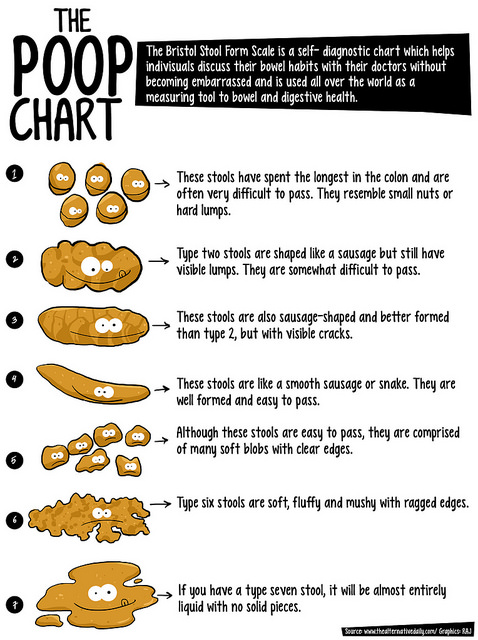Constipation
What is Constipation?
Constipation is when your child has trouble pooping. This might mean:
- Pooping less often: Going less than three times a week.
- Hard, dry poops: That are difficult to pass.
- Straining to poop: Needing to push a lot.
- Pain when pooping: Feeling uncomfortable or hurting.
- Tummy troubles: Having stomach aches or feeling bloated.
Sometimes, constipation can also lead to accidents (encopresis), needing to pee more often, or even wee accidents.
What Causes Constipation?
Lots of things can cause constipation in kids:
- Food: Not eating enough fruits, veggies, and whole grains (fiber).
- Drinks: Not drinking enough water.
- Holding it in: Being scared to poop or not wanting to stop playing.
- Toilet training troubles: Feeling stressed or anxious about using the potty.
- Not moving enough: Exercise helps things move along!
- Medical problems: Some illnesses or medicines can cause constipation
What should your poo look like?

Managing Childhood Constipation at Home
While seeking professional guidance is essential for addressing persistent constipation, there are several strategies you can implement at home to support your child’s bowel health:
- Hydration: Ensure your child drinks plenty of fluids throughout the day, primarily water. Aim for 8-9 small glasses.
- Prompt Toileting: Encourage your child to use the toilet as soon as they feel the urge to defecate.
- Establish a Routine: Encourage regular toileting by having your child sit on the toilet for a few minutes after meals.
- Optimize Toileting Posture: Use a small footstool to elevate your child’s knees while on the toilet, promoting a more effective defecation position.
- Unhurried Toileting: Allow your child ample time and encourage relaxation during bowel movements. Avoid rushing or pressuring them.
- Positive Reinforcement: Focus on positive reinforcement and avoid punishment for accidents, as these are often involuntary.
- Dietary Modifications: Increase your child’s intake of fibre-rich foods, including fruits, vegetables, and whole grains. Consult a dietician to identify and address potential food intolerances.
- Collaboration: Inform your child’s school or childcare provider of their needs to ensure consistent support.
Seeking Professional Support
If home management strategies are insufficient or your child experiences persistent constipation, it’s crucial to seek professional guidance.
Our Kid’s Continence Team can provide comprehensive assessment, diagnosis, and personalised treatment plan to address your child’s specific needs.
Work with us!
Do you have a passion for making a real difference in the lives of women and children whilst still caring for yourself and your home life?

